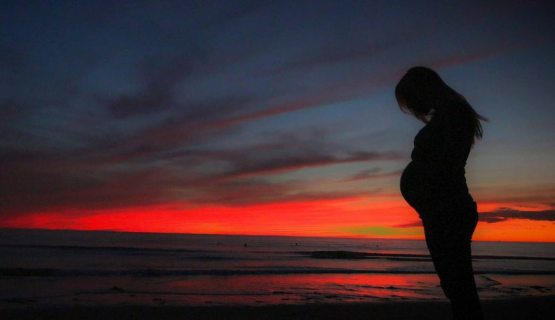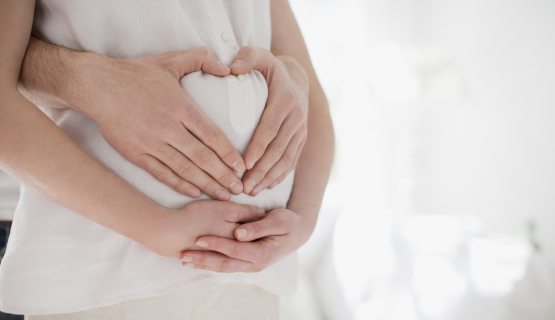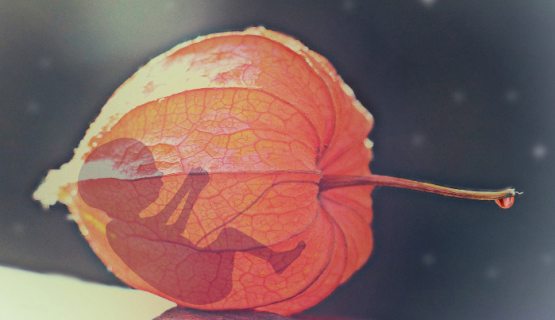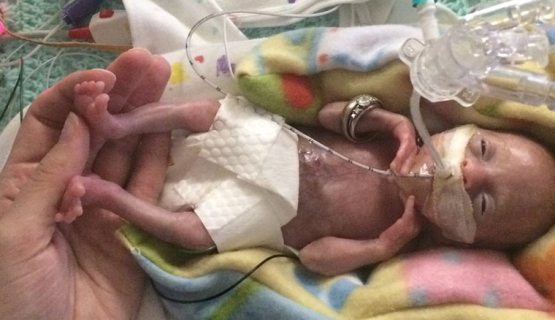”She thanked me for helping her to became a mother” – an interview with Edit Frivaldszky
Edit Frivaldszky is one of the best-known figures in the field of life and family protection, who has been helping mothers in distress for more than a decade. Her vocation stems not from personal involvement but from the fact that she once offered a helping hand to someone who, on her own, would not have been able to say yes to the life she was carrying. Edit has also been a voice on social issues, advocating for children and families both in Hungary and abroad, and has been awarded the Chance For Life Award (‘Esély az életre díj’) for her work.

You are a mother of three and a wife, and you also run two NGOs: the Együtt az Életért Egyesület (”Together for Life Association”) and the Emberi Méltóság Központ (’Human Dignity Centre’). What is the purpose of these?
Together for Life was founded in 2008 to help struggling mothers who feel burdened by their pregnancy and see no way out. I can solve no mother's problem, I can't have her baby, but I can help her to solve it herself. I know families who would like to adopt, I can collect baby clothes if they need them, I can help people find their district nurse, a social worker, what support they can get, or I can simply listen. We also run a helpline so you can call us at any time and ask questions. We try to find a tailor-made solution for everyone so that they could say yes to the life they carry and would not think that abortion is the only solution to their problem. In the association, we have also created the professional background necessary to prepare open adoptions. Within a few years, we saw that in most cases there was no safety net around the mother to help and empower her to keep her child. In fact, it is the breakdown of families and the social image of abortion that has led to the fact that the number of abortions in Hungary is still so high. It was then that we decided that it would be good to create an organization to represent the protection of family and life at the national and international levels. Thus the Human Dignity Centre was born, whose work is followed and supported by thousands of people. We also take up important issues within the association, such as the recent court condemnation of the "fake bishop who administered Holy Communion with an abortion pill".
How did you become a pro-life activist?
I am not personally involved in this issue, I have not had an abortion, I am not an adopter or adopted. My vocation comes from helping someone else. Seventeen years ago, I was working for a multinational company and one of my colleagues became pregnant unwillingly and was about to have an abortion. She shared her thoughts and feelings with me, we talked several times, and then she disappeared for a while.
She went to have an abortion, but at the last minute, when she was getting dressed for the operation, she changed her mind. Later she thanked me for helping her to become a mother.
That was the first moment when I felt I had a job to do in this area.
What did you say to her?
It’s rather what I didn't say... I listened to her and asked her: what was on her mind, what were the pros and cons of abortion, what she wanted, why she couldn't have a child, what her family and her environment thought, how she imagined her life in five years' time. She was very lonely, but she found help from her family, one of her relatives stood by her. Then, when our first daughter was born and I was living the relatively closed life of a new mother, one of the shop assistants I talked to from time to time said to me: "I haven't told anyone yet, but I'll tell you: I'm expecting a baby". I took this as another signal from God. I prayed a lot to find out if this was really what I was supposed to do. And God showed me the way in a beautiful way, that is, that I should not really go in any other direction than the one he wanted me to go.
Where does this deep faith and trust in God come from?
I went to a success-oriented high school, there was no question that I was the master of my life, that my choices determined where I would go, who I would become. Then, at the age of twenty, I converted to God and accepted that God, not I, was the Lord of my life.
God has a plan for everyone, so the path is given, it's not me who builds it, the question is whether I will go down it.
But faith in providence means not only that God will work it out, but also that He is counting on me. We must do our part and trust Him since he is carrying us in the palm of his hand.
Your name is one of the first in Hungary today when it comes to life and family protection. You make your voice heard on many issues, you stand up when necessary, but you don't shout for what is right. Are you a silent warrior?
I've always had a great sense of justice, my parents told me when I was a child to become a judge. In fact, I am not a loud fighter because I always like to back up what I say with facts. However, when it comes to child protection, I can get carried away. Obviously having three children gives us a different perspective and perhaps a more distant view than someone who doesn't have any and doesn't want any. But I will not get into unnecessary arguments and emotional drumbeats. I have been in the field of life and family 00protection for fourteen years, I do not have to accept every invitation to debate, nor do I have to prove to myself and others that what I do is right. I believe that we need to speak to everyone, not just those who move within our coordinate system because there are a good number of liberals and non-Christians who would raise their eyebrows if a drag queen walked into their child's school, or if it were possible to have an abortion at the age of twelve without parental supervision, as the WHO recommends. However, there are also some believers who think abortion is acceptable and are happy that someone is finally talking to children about sex, even if it is promoting homosexuality. So it is not a matter of faith that we stand for, so we speak to everyone and we put it in terms that everyone can understand.
How do you see your role as an NGO?
One of the most important tasks of an NGO is to bring grassroots initiatives and the voice of the people to decision-makers so that people's will and demands are not only expressed in a voting booth every four years but also in the meantime.
We are the voice of Hungarian families both in Hungary and abroad. Our other important task is to ask for what is feasible. For example, we have been trying for years to prevent programs and teaching materials that promote homosexuality and transsexuality in any form from being introduced into schools without the parents' knowledge. This has now been achieved, but it has been a long road to success. I am pleased that the Hungarian Government is in favor of the protection of life and the family and is taking a leading role in this area in Europe so that we face open doors here at home when we approach decision-makers.
What else do you do?
I continue to run our family business, where I now get my salary. By divine providence, we have been able to set it up and run it without taking up too much of my time, so I can do the association and volunteer work nicely alongside.
Do you talk to your teenage girls about your vocation?
I have always tried to keep my work separate from my family, both in terms of time and space, but if asked, I answered. When they were eight or ten, we took them once to an adoption camp.
That was the first time they were confronted with the fact that someone who was adopted was not being brought up by their birth parents, but they didn't ask why they were adopted, they asked how someone could become adoptable.
Now that they are teenagers, they are showing more interest in my work, one of them is particularly sensitive to the subject, but I don't want any of them to follow me. This is my vocation, not theirs.
What gives you satisfaction in your work and can you measure the results in figures?
We don't measure the success of our work by how many mothers decided to keep their children, or how much we have reduced the number of abortions, how many adoptions we have helped with, or how many baby blankets we have collected. It's how many women in distress we have stood by, how many we have helped to balance themselves, their life situation, to feel more comfortable and able to make their own choices.
In December, you were awarded the Chance For Life Award. Where do you place this recognition in your life?
In 2013, I have already received a state award from President János Áder in recognition of my work in the fight against violence against women and the protection of human life. I feel that the award I received then was primarily for the subject I work on, while this one is not only for it, but also for me. As it was said in the laudation, it was for my persistent work over more than a decade, which also means that working in the field of the protection of life was not just a passing fancy for me, but a vocation. I am delighted with the award, which is a newly established recognition, and especially with the fact that I received it from Minister Katalin Novák herself.
What is your most important job now?
At the beginning of February, we'll be showing the Hungarian dubbed version of the American movie Unplanned, which tells the story of one woman's amazing transformation based on real events. Abby Johnson wanted to help women in trouble all her life. As the director of Planned Parenthood USA, she assisted in twenty-two thousand abortions, and one day she saw something that changed her life. She converted to Christianity and joined the pro-life movement, and today is one of America's leading pro-life advocates. I consider the making of the Hungarian version of this movie a great achievement in my work. I do not know how many people will choose life after watching it, how many will change their minds, because there will be no statistics, but I am sure that this movie will help to make people's minds clear: human life begins at the moment of conception and abortion does not serve the well-being of women.







